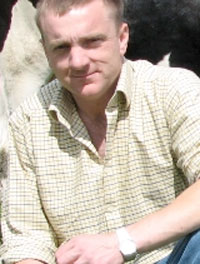Pack Report: Don’t lock farmers in, industry leaders warn

Proposals to reintroduce headage payments in Scotland must not lock livestock farmers into particular production systems, industry leaders have warned.
The NFU Scotland said it welcomed the recognition that agricultural support was vital, not least because of the benefits that flow from securing food production from domestic farms.
But the union cautioned against shifting the direction of the Less-Favoured Area (LFA) Support Scheme. And it warned that the balance between larger livestock headage support payments and market-orientation needed further work.
NFUS president Jim McLaren said: “I wonder if, with larger headage payments and such a clearly defined LFA/non-LFA split, we are in danger of locking people into particular farming systems.”
Doing so would be a mistake at a time, when market orientation and freedom to farm were still the watchwords in a country marked by the benefits of mixed farming operations, Mr McLaren said.
Direct support should encourage quality production without tying farmers into particular systems. “We would like to explore other options, such as a simplified grazing premium to reflect different stocking densities.”
Scottish meat wholesalers voiced concern at the proposed removal of calf-based payments for lowland farmers who reared 18% of the country’s suckler cows and 41% of all finished cattle.
Highly efficient and progressive cattle breeders and finishers whose specialist skills in the production of quality Scotch meat may be put at risk as a result of this proposal, said the Scottish Association of Meat Wholesalers.
Consideration should be given to retaining a modest “base” rate across all calves, regardless of their place of birth, with a subsequent increase for those raised in less-favoured areas, said an association spokesman.
Jim Hume, Liberal Democrat MSP for the South of Scotland, said the priority in the debate over the future of CAP was maintaining a budget that can deliver a sustainable and economically viable farming sector.
“I welcome the fact that the case for continued direct payments to Scottish farmers is now recognised and accepted. Work will now have to be done on the detailed delivery methods of that support to create a system that is workable.”
